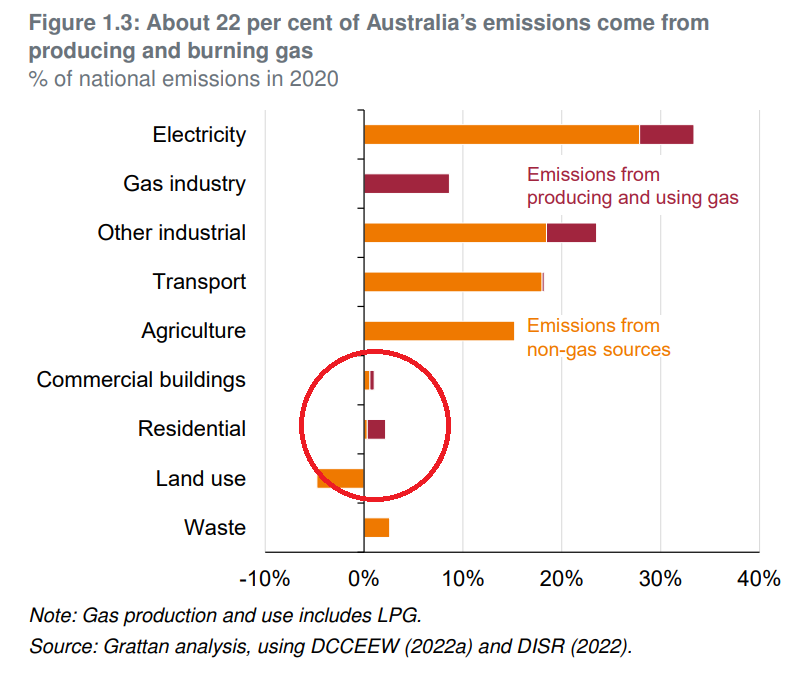The following story is coming to VIC and QLD as well if Canberra does not fix the collapsed national gas market:
Origin Energy is seeking at least a safety net to prevent it wearing losses from continuing to operate the Eraring coal power station in NSW as discussions about keeping the massive generator online stretch on 18 months ahead of its scheduled closure.
The negotiations started some six months ago and there is no timing for a decision, leaving some of Origin’s competitors nervous about planning their own generation requirements and clean energy transition. Eraring is the country’s largest power station and regularly accounts for one-quarter of the electricity required in NSW.
Daniel Mookhey, the NSW Treasurer, said on Wednesday that the negotiations about keeping Eraring open were “not an opportunity for Origin to make a windfall gain at the public’s expense”. “The NSW government is going to ensure that as we talk to them about what options are available, that we are delivering reliable and affordable power in a manner that respects the public’s dollar,” Mr Mookhey said.
Good one. So long as we all pretend there is no market failure here, Origin has all the power.
Which is absurd. This is a total market meltdown.
Origin is a hilarious case (in the usual dark way) of everything that has gone wrong with the Australian energy transformation.
Origin is a card-carrying member of the East Coast LNG Cartel, spewing untold volumes of near-free gas to China since 2013. It does so, in part, to guarantee that the local market for gas remains tight.
This is why local prices for Aussie gas are 20% higher in NSW today than in Asia and Europe.
Since the LNG Cartel wrecked the local security of gas supply after 2013, nobody has been willing to invest in gas power generation at scale.
That would require a functional domestic reservation regime for gas like that operated in WA. But alas, that was not done.
In 2013, the Origin sponsored Grattan Institute’s energy analysis, composed by former Origin executive Tony Wood, advised government against reservation:
“With more than $160 billion forecast to be invested in LNG production, the export industry is good for the economy. Governments should therefore resist self-interested calls from some industries to reserve gas or cap prices for the domestic market”.
“One reason that reserving gas is a bad idea is that there is no shortage of gas. The challenge is to ensure that the gas gets delivered to where it is required, and this means commercial buyers and sellers need to reach commercial terms on new arrangements”.
“Capping prices for the domestic gas market is a very bad idea. It amounts to a tax on producers and a subsidy for domestic gas users. Protectionism of this sort may provide some short-term price relief for targeted industries, but it tends to mean inefficient businesses and less investment”.
“Ultimately it leads to higher prices and damages the economy for us all”.
The opposite result transpired, of course. There was never enough gas, and there still isn’t.
So, today, the NSW energy transition to intermittent renewables must be supported by coal power instead of gas. A dark paradox, to be sure. Coal is entirely unsuited to this task because it cannot turn on and off swiftly and runs at losses.
But guess what? Origin has the answer. Also, in 2013, Origin “bought” the vast Eraring coal plant from the NSW government for $50m, just before it began to export the gas. In reality, the NSW government paid Origin $250 to take Eraring, given it came with a $300m compensation payment for a cancelled coal contract.
Then Origin went to work denuding NSW of gas and now has the state over the Eraring barrel.
But it gets worse.
Instead of fixing any of this, the Origin-sponsored Grattan Insitute now has state governments chasing their tails, forcing households to rip gas out of their walls. In contrast, the gas industry pollutes at far greater volumes at will:
Grattan Institute’s Tony Wood said getting all households off gas was critical to meeting government emissions reduction targets.
“In Victoria it’s the most important bit cause we use gas for heating our homes and therefore, gas use at home is a much bigger volume in the Victorian home, than the amount of gas used in Brisbane, for example, where you might only use gas for cooking,” Mr Wood said.
“Other states will in time have to move down the same path, even though their priorities might be somewhat different in the short-term.”

And that’s still not the end of it!
Because the federal government still refuses to reserve East Coast gas, dogged by fear of Origin and the LNG Cartel, the price shock in utility bills for gas and power has become an endemic inflation shock.
Today, the state and federal governments share in paying consumers and businesses billions in compensation payments for their inflated bills, which are nothing more than a public subsidy passed through to Origin and friends to keep gas and power prices high, paid for by higher taxes, to which the LNG Cartel barely contribute, having corrupted the tax code as well.
It is a tale of a market collapse, manipulation, regulatory capture, control fraud, and soverign theft so all-encompassing that it makes Enron, the world’s largest-ever energy criminal conspiracy, look like a rendition of Bambi.
An earlier version of this story included an autocorrect error that changed Mookhey to “Monkey”. This was unintended, and we apologise for any offence caused.

